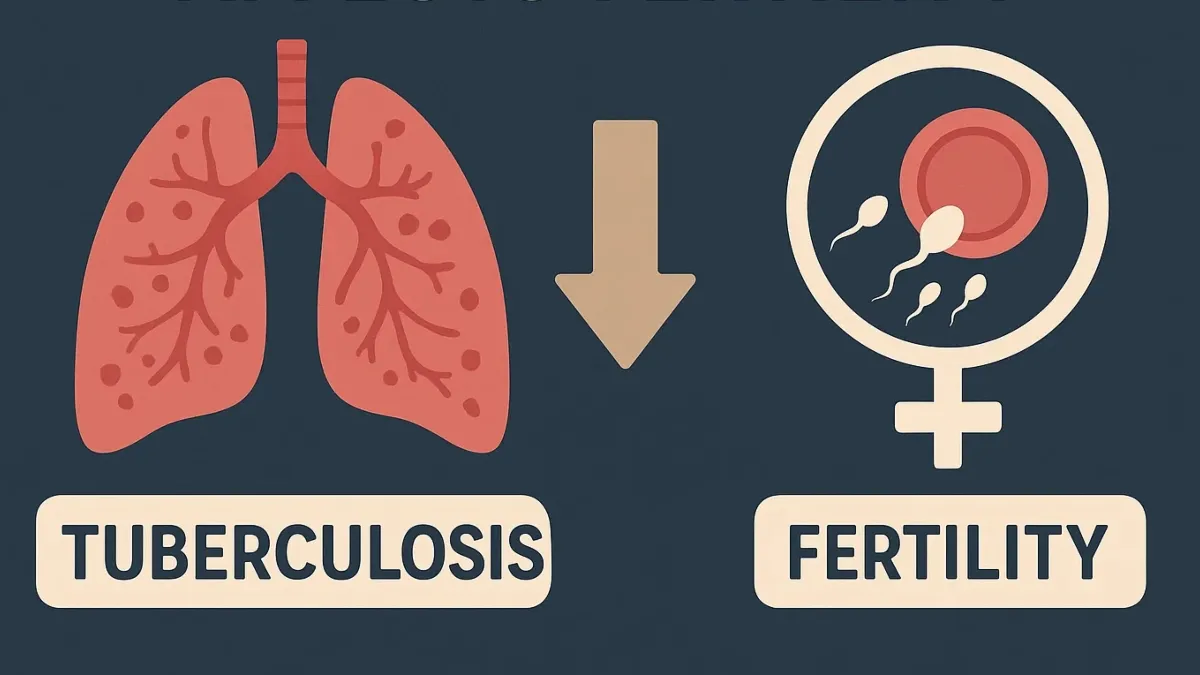Tuberculosis is an infectious disease caused by the bacterium Mycobacterium tuberculosis and impacts the lungs. TB is spread through the air when an infected person coughs or sneezes. Common symptoms are persistent cough, weight loss, fever, night sweats, and fatigue. In some cases, TB may remain silent and show no symptoms (latent TB). Tuberculosis (TB) is a life-threatening lung infection, but many people don’t realise that it can also affect other parts of the body, including the reproductive system. When TB involves organs like the fallopian tubes, uterus, or even the testes, it can lead to fertility challenges. Even after successful treatment, the scars left behind by TB can cause complications in conceiving naturally. With rising awareness around fertility issues, it's important to know how a history of TB could be one of the hidden reasons behind infertility in both men and women.
Understanding the association between TB and infertility:
According to Dr Rashmi Agarwal, Fertility Specialist, Nova IVF Fertility, Gurgaon, when TB affects the reproductive organs, it is known as genital or pelvic TB. In women, it commonly impacts the fallopian tubes, endometrium (lining of the uterus), and ovaries. According to various studies, TB can lead to scarring, blockages, or damage that makes it difficult for eggs to travel or implant properly, leading to infertility in women. In men, TB can affect the testes or prostate, resulting in low sperm count or obstruction in sperm transport. Even if the TB infection was treated in the past, the damage caused to the reproductive organs can still be present and impact one’s fertility. This is why some couples may struggle to conceive without knowing that a previous TB infection could be the underlying reason.
To avoid TB-related infertility, early detection and completion of treatment are important. Anyone who has had TB, mainly in the abdomen or pelvis, should consult a fertility specialist if they’re facing difficulty in conceiving. Regular follow-ups can help identify any hidden damage. For the TB patients struggling with infertility, ARTs could be of help. TB patients should not get bogged down, as it is still possible to conceive and fulfil their dream of parenthood. Couples who wish to conceive should consult a fertility consultant who will examine their overall health and may recommend in vitro fertilisation (IVF) treatment if necessary. Fertility treatments such as IVF could help TB patients bypass damaged fallopian tubes or uterine lining by allowing fertilisation outside the body and direct embryo transfer into the uterus. It can increase the chances of pregnancy despite structural damage caused by past tuberculosis.
Disclaimer: Tips and suggestions mentioned in the article are for general information purposes only and should not be construed as professional medical advice. Always consult your doctor or a dietician before starting any fitness programme or making any changes to your diet.
ALSO READ: Cholesterol isn’t the only culprit: Expert reveals lesser-known causes of coronary artery disease

